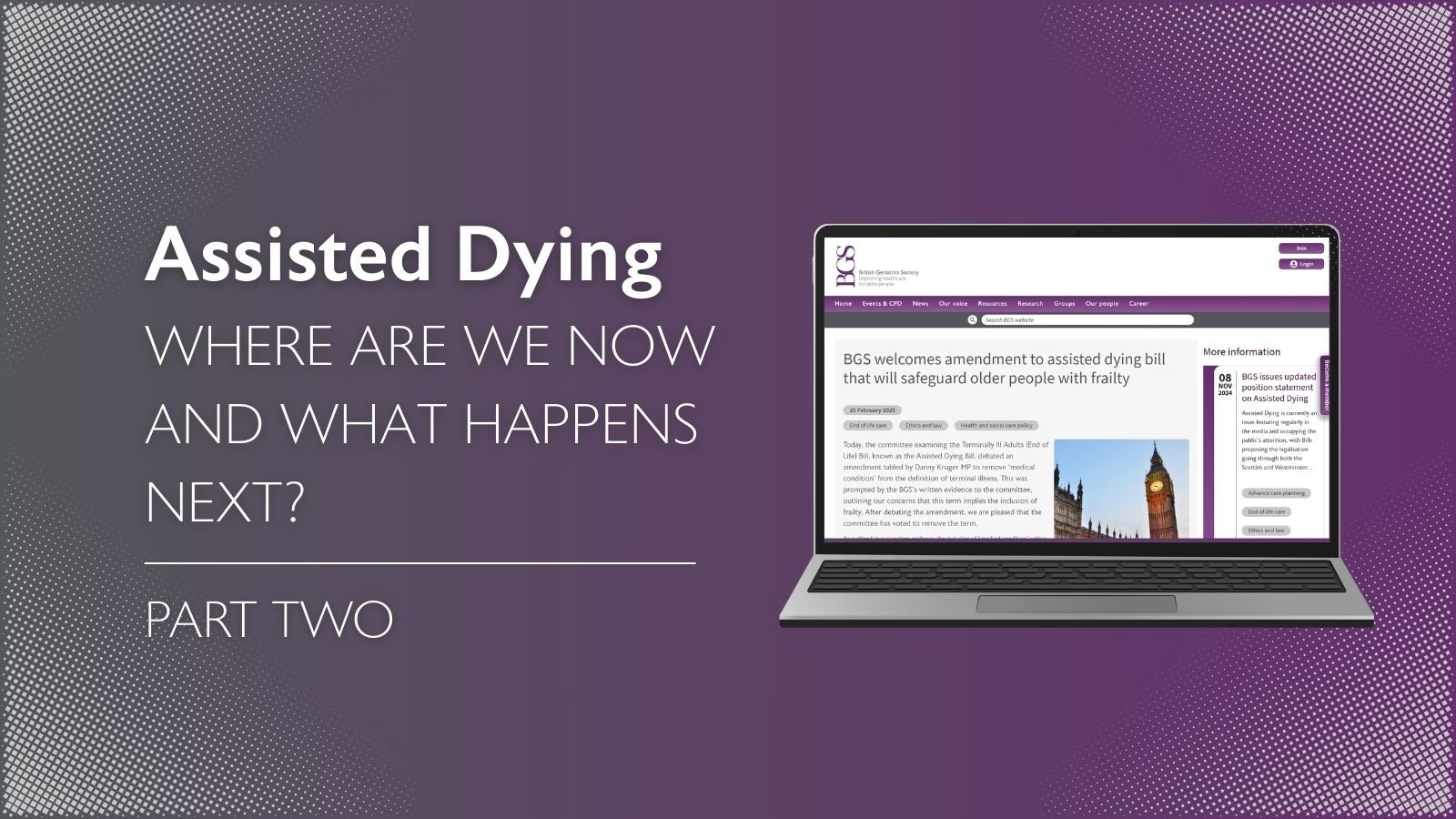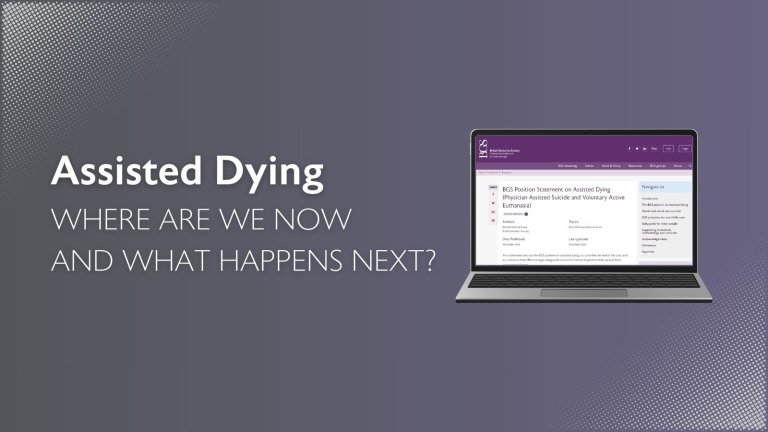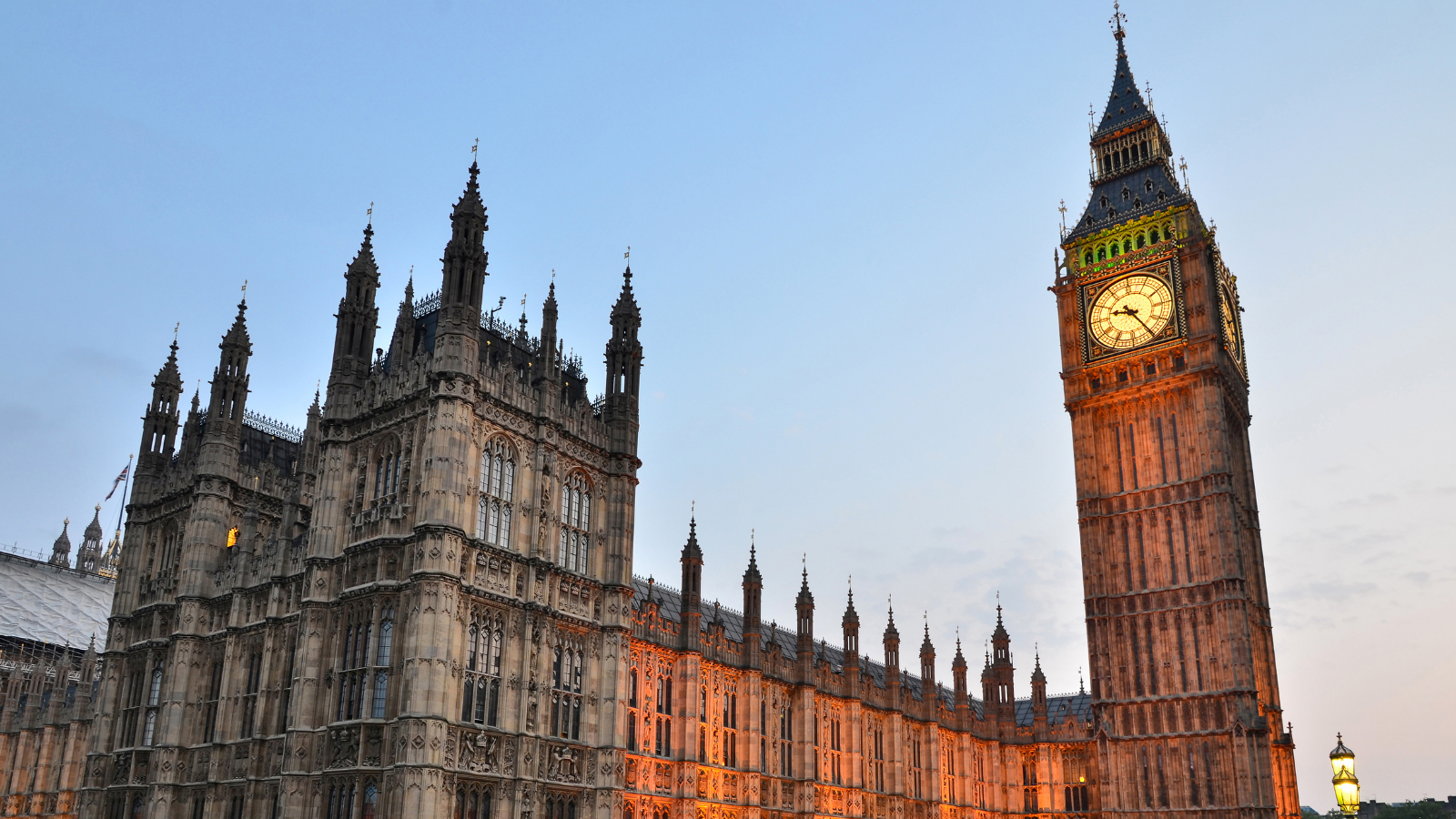The Terminally Ill (Adults) Bill, often called the Assisted Dying Bill, reached the end of its committee stage on 25 March. In December, the BGS published a blog to get you up to speed with everything you need to know about assisted dying and the process of the bill. This blog will explain what has happened since then, what is next for assisted dying, and actions you can take.
What happened during committee stage?
The committee stage of the Assisted Dying Bill provided the opportunity for the public bill committee, comprising 23 MPs, to scrutinise the bill and table amendments.
The committee stage kicked off with three days of oral evidence from expert witnesses, including England’s Chief Medical Officer, Professor Sir Chris Whitty, as well as medical associations, societies, councils and charities. The committee also put out a call for written evidence and over 440 pieces of evidence were submitted by a range of organisations and individuals.
Following this, the committee met twice a week to analyse the bill line by line and vote on amendments tabled by committee members. In total, the committee discussed over 600 amendments and sat for 90 hours.
The current version of the bill, as amended in the Public Bill Committee, can be viewed on the bill’s webpage.
How has the BGS influenced during committee stage?
Ahead of the oral evidence sessions, the British Geriatrics Society (BGS) wrote to the committee Chairs requesting the opportunity to provide oral evidence, but did not receive a response. Despite two separate amendments from MPs suggesting that the BGS be invited to give evidence, the Society was not included in the witness list.
However, we did submit written evidence to the committee. This was developed with input from our working group of multidisciplinary members who developed our position statement on assisted dying, led by the co-chairs of our Ethics and Law Special Interest Group (SIG). The group spent time analysing the draft bill and assessed its impact on older people. BGS’s written evidence has been published on the UK parliament website.
As a direct result of BGS’s written evidence, Danny Kruger MP tabled an amendment to remove ‘medical condition’ from the definition of terminal illness. As outlined in our written evidence, the inclusion of “medical condition” within the definition of terminal illness is vague, clinically without meaning, and therefore left open to misinterpretation. We were concerned that this term may include frailty and that older people with treatable clinical frailty may choose an assisted death to avoid burdening their family. The BGS provided Danny Kruger MP with a briefing document on frailty, which he referred to in the committee meeting, and this was circulated to the whole committee. The committee was unanimous in its decision to pass the amendment.
What happens next?
The next stage of the bill is called the report stage and gives all MPs an opportunity to consider further amendments to the bill. These can be tabled by MPs not on the bill committee and may include government amendments. A selection of tabled amendments will be picked by the Speaker of the House and discussed at a Friday sitting of the whole House, expected to be 16 May. Debates normally take place on one day but for more complex Bills, this can be spread across several days. Report stage is normally immediately followed by debate on the Bill’s third reading, usually as the next item of business on the same day.
The third reading allows for a short debate limited to what is in the bill, followed by MPs voting on whether to approve the bill to proceed to the next stage. If the bill passes its third reading, it will then proceed to the House of Lords where peers will take it through the same process as the House of Commons (first and second reading, committee and report stage, and third reading). If the bill does not pass its third reading in the House of Commons, it will not proceed to the Lords and fails.
If the bill passes through all stages in the House of Lords, it will then be returned to the House of Commons for consideration of amendments. The Bill may go back and forth between each House until an agreement is met. It will then receive Royal Assent and become an act.
What does the BGS think?
The BGS is opposed to the legalisation of assisted dying and published a position statement last year. We believe that palliative and end of life care needs to be improved before a change in the law on assisted dying is considered, and we are not confident that effective safeguards can be developed to protect older people from harm.
We are also concerned that the bill process has been rushed and lacked important expert scrutiny. The process did not allow for expert policy development before the bill was drafted and lacked robust consultation. There was also a lack of transparency regarding the bill’s timelines and processes.
What can I do?
If you have thoughts or concerns about the bill, you can write to your MP ahead of the third reading, expected to be on 16 May. The BGS has put together a template letter, outlining our concerns about the bill process, that you can edit before sending to your MP. You can find contact details for your MP on the UK Parliament website.


